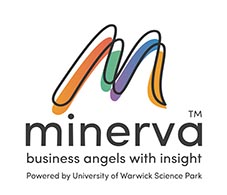A: Investing in unquoted companies is inherently more risky than investing in shares traded on public markets, and advice should always be taken from a suitably qualified independent adviser before making any commitment. Although it brings real opportunities to achieve high returns, ‘business angel’ investment should only be one element in a balanced portfolio of investments.
Much risk can be removed by using common sense: do not invest in businesses or business sectors that you do not understand, refuse to be rushed into making a decision before you have had time to assess the business as thoroughly as you need, and walk away if you have doubts about the personal chemistry between you and the existing shareholders.
The advantage of being a member of the Minerva Business Angel Network and joining one of the investor syndicate groups is that although it is still your decision if you invest or not, as a group you “collectively” view and assess propositions and collectively negotiate terms. The more members that invest will spread the risk financially but also there is a better chance someone in the group will know the sector, will have the necessary skills missing, will be able to devote time perhaps as an NED to mentor and help the managment team execute the plan.
Early stage investments are high risk but have the potential for high returns – so many Angel investors will adopt a “portfolio” strategy and spread their risk exposure across many investments – some small and some large.
The tax benefits from an Enterprise Incentive Scheme (EIS) and/or Seed Enterprise Incentive Scheme approved investment are signicant with 30% relief on your initial investment – in summary
- Income tax relief at the 30% rate of tax on the amount invested in qualifying investments of up to £500,000 per annum. The EIS relief may be withdrawn if certain events occur within three years, e.g. shares sold
- Any gain arising on a disposal of the shares after three years to be free from capital gains tax
- Deferral of capital gains (no limit) on any other assets, by reinvesting all or part of the gain into an EIS company within one year before, or three years after, the gain accrued. The deferred gain becomes chargeable to capital gains tax if certain events occur later
- Relief for any losses made on the disposal of EIS shares against capital gains tax or, in some circumstances, income tax
- The opportunity to participate in the running of the business and to receive reasonable remuneration for doing so
- an individual could have a total tax saving and deferral of 60% of their investment.
